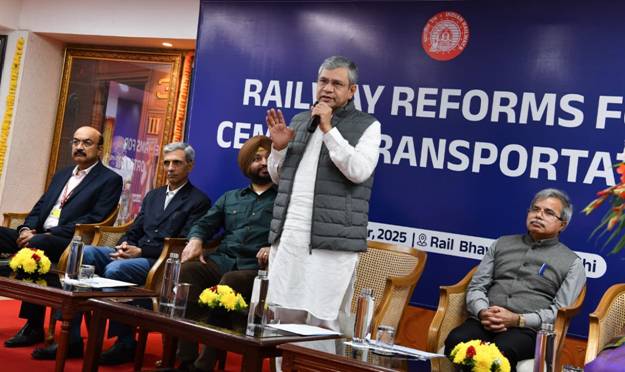Railway Minister Ashwini Vaishnaw on Tuesday announced a reduction in freight rates for bulk cement transported in tank containers, introducing a new pricing structure aimed at reducing logistics costs for the building sector and supporting affordable housing.
Unveiling the policy at Rail Bhawan, the minister said the new system will lower cement transportation expenses for consumers, especially middle-income and economically weaker families.
Under the revised framework, freight will now be charged based on actual tonnage, calculated through the Gross Tonne Kilometre (GTKM) of a train. The slabs based on distance and weight have been removed, and the charge has been set at a flat rate of ₹0.90 per tonne per kilometre for the distance travelled.
The railways will promote the nationwide use of tank containers for bulk cement movement. According to the ministry, these containers are made in India and designed to standard dimensions of 20 ft × 8 ft × 8.5 ft, with a payload capacity of 26 tonnes and a gross weight of 31 tonnes. They allow loading and unloading in 25–30 minutes and can seamlessly shift between rail and road for end-to-end multimodal delivery.
Bulk cement transportation from manufacturing units to consumption-centre terminals using specialised wagons is projected to reduce logistics costs and carbon emissions, while easing highway congestion. To support this shift, the railways will facilitate the development of bulk cement terminals across the country. These terminals will be directly connected to the rail network and equipped with hoppers, silos, bagging plants and related facilities for smooth handling and storage.
According to the ministry, the new policy will support the movement of large volumes of cement in a single consignment, reduce packaging requirements, and prevent material loss due to spillage. Faster turnaround time is expected through mechanised loading and unloading.
Vaishnaw also said India has become the world’s second-largest railway freight carrier, surpassing the United States. He added that rail network expansion has increased from 4 km per day between 2004–14 to 12–14 km per day at present. The broad-gauge network is now nearly fully electrified, and over 1,300 Amrit Stations are under development across the country.














